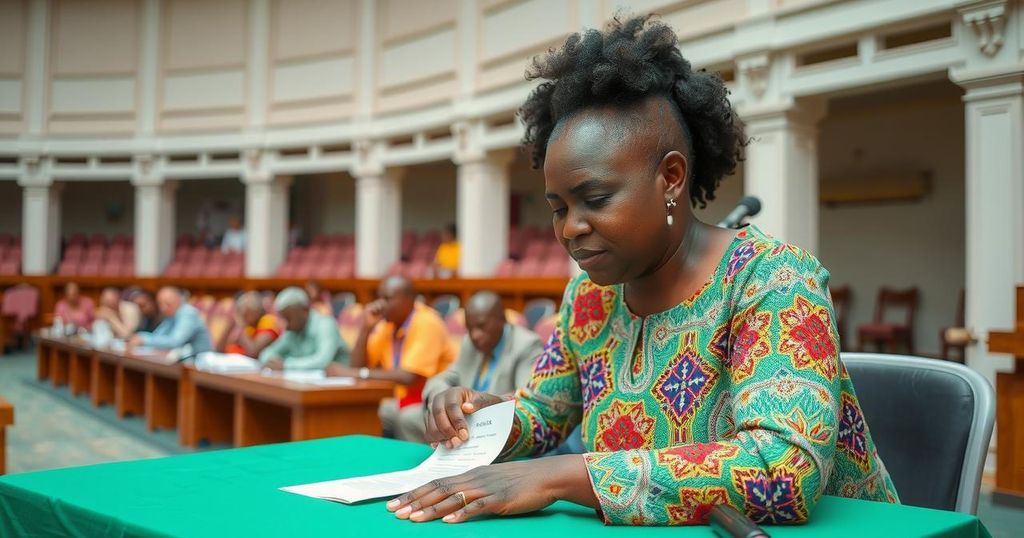World news
ABDALLAH SAMBI, AFRICA, AUSTRALIAN ASSOCIATED PRESS, AZALI ASSOUMANI, COMOROS, ELECTION FRAUD, GOVERNANCE, GOVERNMENT, HAMIDOU KARIHILA, HOPE OF THE COMOROS, INDIAN OCEAN, INDIAN OCEAN ARCHIPELAGO, JUWA, NO, NOUR EL - FATH, OPPOSITION, POLITICS, PRESIDENTIAL ELECTION, REUTERS, SUPREME COURT
Michael Grant
0 Comments
Comoros Votes in Controversial Elections for 33-Seat Parliament
The Comoros is conducting elections for a 33-seat parliament amidst allegations of electoral fraud related to President Azali Assoumani’s previous re-election. Approximately 338,000 registered voters are participating, with nearly 100 candidates contesting. Opposition parties are divided on participation, with some calling for a boycott. Results are expected by Friday.
Voters in the Comoros are participating in crucial elections for the 33-seat parliament, amid controversy following the contentious re-election of President Azali Assoumani the previous year. Despite allegations from the opposition regarding systemic electoral irregularities, the ruling party officials have firmly denied any wrongdoing. With more than 338,000 registered voters casting their ballots, the parliamentary elections had not been held since January 2020. Nearly 100 candidates have been confirmed by the Supreme Court to compete in this election.
Assoumani, who has maintained power since a coup in 1999 and has succeeded in three subsequent elections, is facing accusations from opponents related to authoritarian governance. There are suspicions that he desires to position his eldest son, Nour El-Fath, as his successor upon the conclusion of his term in 2029, especially since he granted his son extensive responsibilities in coordinating government operations in 2024.
While some opposition parties, including Juwa, led by former President Ahmed Abdallah Sambi—who is currently serving a life sentence—have advocated for a boycott of the elections, others have opted to participate. Hamidou Karihila, a candidate from the opposition Hope of the Comoros party, expressed that by contesting the elections, they aim to highlight flaws in the governing system.
The results of the parliamentary elections are anticipated by the end of the week, specifically by Friday.
The parliamentary elections in Comoros occur under a backdrop of political tension and allegations of electoral misconduct. President Azali Assoumani, who has been a dominant figure in Comorian politics for several decades, has been criticized for his authoritarian style of governance. His political maneuverings are viewed with suspicion by opposition leaders, who have expressed concerns regarding the possibility of dynastic succession. The country, an archipelago located in the Indian Ocean, has a tumultuous political history, with Assoumani’s ascent to power beginning with a coup in 1999. Previous elections have been overshadowed by controversy and accusations of fraud, leading to divisions among opposition parties regarding strategies for participation or boycott.
In summary, the voters of Comoros are engaged in parliamentary elections that are marked by political strife and allegations of corruption. While divided, opposition parties are navigating their responses to Assoumani’s leadership, amid fears of authoritarianism and political dynasticism. As the electoral process unfolds, the implications for Comoros’ democratic stability and future governance remain to be seen, with outcomes expected shortly after polling concludes.
Original Source: www.merimbulanewsweekly.com.au




Post Comment